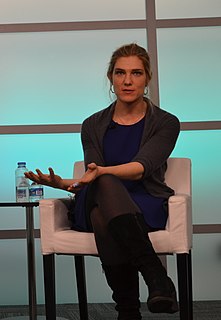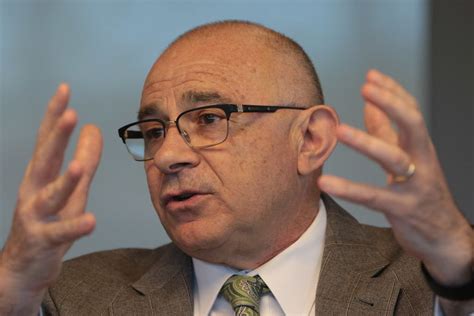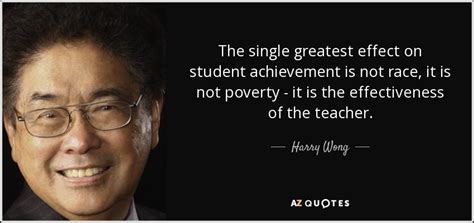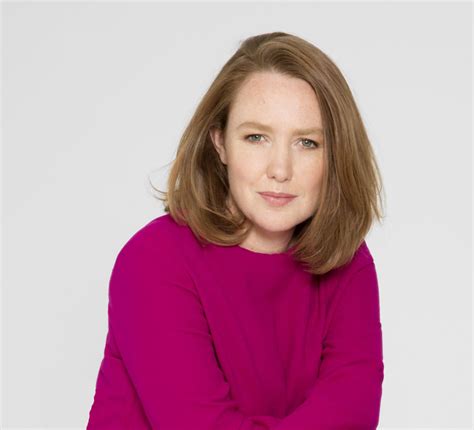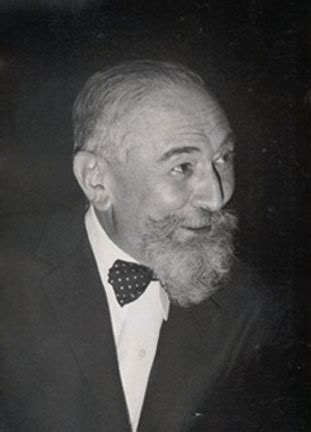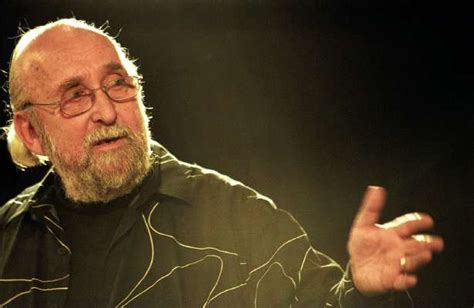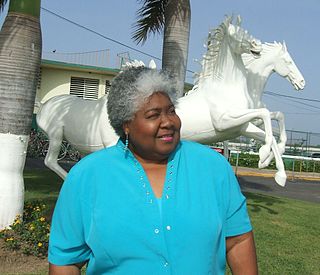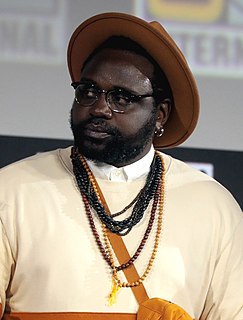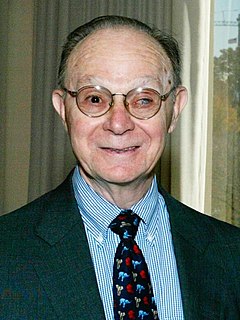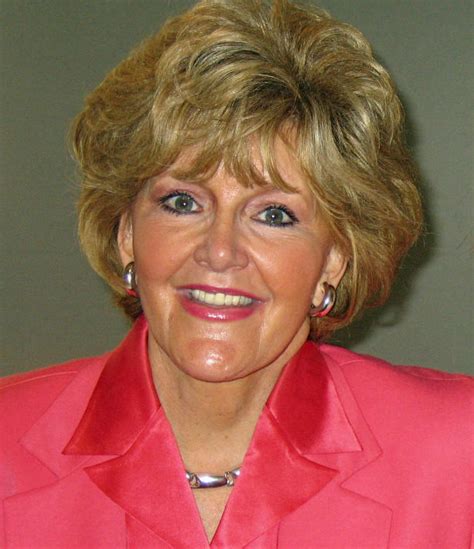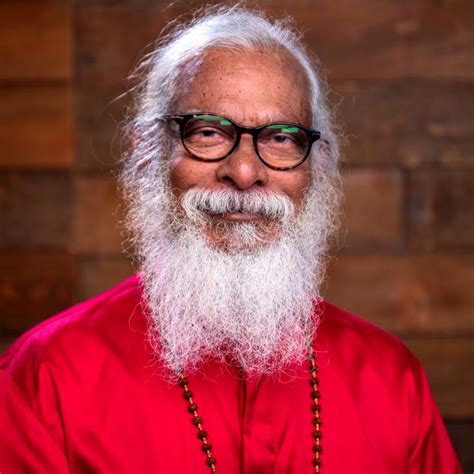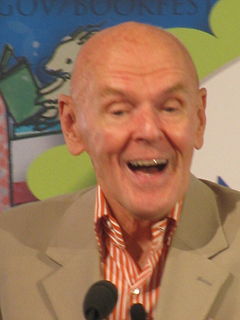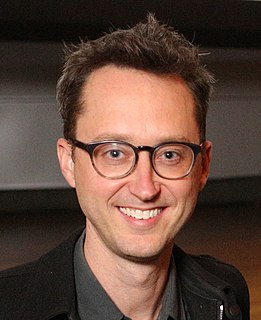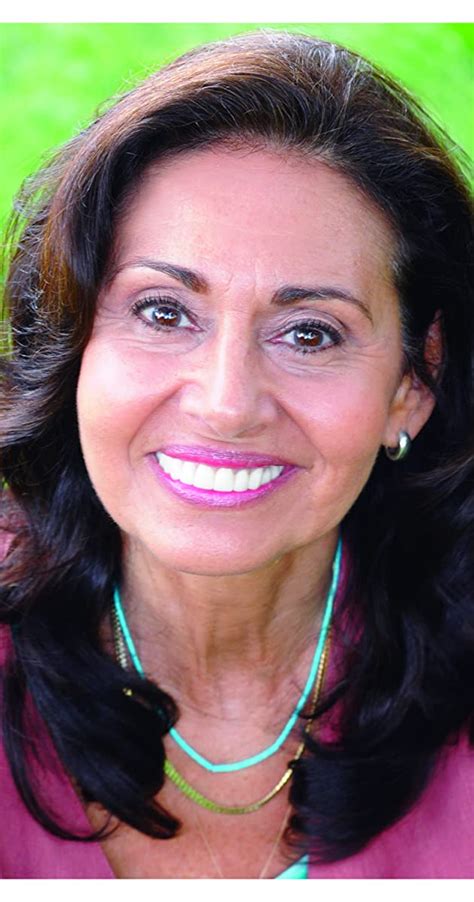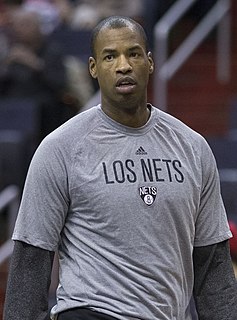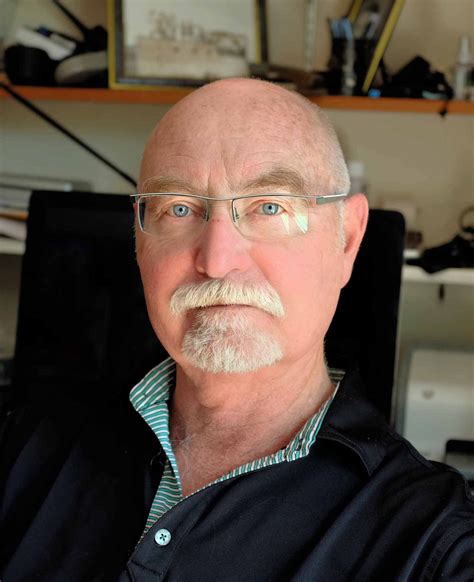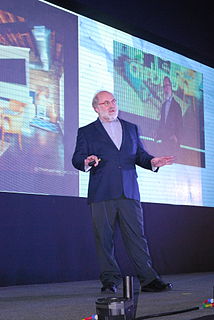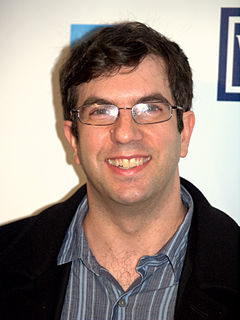Top 635 Classroom Quotes & Sayings - Page 10
Explore popular Classroom quotes.
Last updated on December 22, 2024.
It does no one any good to say their novel sucks if you don't have an idea how to make it better, how to approach it from different angles and make it work. It's obviously a subjective process, right? But the thing about subjectivity, at least in the classroom, is that you're banking on your professor's subjectivity to be both personal and professional - that he or she has some sense about the world outside the workshop.
As the years progress, what women and men will discover is that the most lasting and rewarding educational experiences come not from specific information provided in classroom lectures or assigned textbooks, but from the values obtained in active engagement in meaningful issues. We achieve for ourselves only as we appreciate the problems and concerns of others-and only as we see our own lives as part of a much greater social purpose.
The president(Obama) comparing him to a kid in the back of a classroom, I think, is very indicative of the president's lack of appreciation of who Vladimir Putin is. He's an old KGB colonel that has no illusions about our relationship, does not care about a relationship with the United States, continues to oppress his people, continues to act in an autocratic fashion.
You know, students who major in elementary education - they're going to be grade school teachers - they have the highest rates of math anxiety of any college major. And they bring that into the classroom. So you find students being introduced to math concepts by teachers who may have not only a lack of training but also a lack of enthusiasm about math.
Free speech is what we all have and is guaranteed by the First Amendment of the US Constitution. Academic freedom refers to what happens in the university, particularly in the classroom, and to the importance of the teacher having the right to teach and share what he or she has learned, has proven her competence to teach, having gone through a series of tests and certifications including research and writing to demonstrate her abilities and knowledge.
I am as fond of colorful language as anyone, but I try not to inflict it upon strangers. I suspect many people sense they should have better manners, and need only a nudge. In high school, I was addressed for the first time in my life as "Mister Ebert" by Stanley Hynes, an English teacher, and his formality transformed his classroom into a place where a certain courtliness prevailed.
Aesthetic value emanates from the struggle between texts: in the reader, in language, in the classroom, in arguments within a society. Aesthetic value rises out of memory, and so (as Nietzsche saw) out of pain, the pain of surrendering easier pleasures in favour of much more difficult ones ... successful literary works are achieved anxieties, not releases from anxieties.
In the early days, I loved Facebook. I loved being able to keep tabs on hundreds of college classmates all at once, of being able to tag all my dorm mates in the photos we took on our garbage 7 megapixel cameras, of creeping on crushes, of keeping up with every person I met at a party or in a classroom without doing very much work.
When you venture at life with curiosity, you can learn from anything. You learn from things that you could never maybe thought you could learn from. And when you actually step into the room with a lot of people who have an education in a classroom, that is very similar to other people's educations, you'll actually come with a unique perspective that could be a valuable perspective that creates an innovation that could change the world.
I've come to the frightening conclusion that I am the decisive element in the classroom. It's my personal approach that creates the climate. It's my daily mood that makes the weather. As a teacher, I possess tremendous power to make a student's life miserable or joyous. I can be a tool of torture or an instrument of inspiration. I can humiliate or humor, hurt or heal. In all situations it is my response that decides whether a crisis will be escalated or de-escalated and a student humanized or de-humanized.
I loved teaching social studies. And I loved starting each year by teaching about John Locke and the social contract. That lesson helped me teach not just about our rules for the classroom, but how, in our democracy, we give up some individual rights to ensure we collectively have the right to live and prosper in a society.
During my eleven years as a New York City public school teacher, I saw firsthand the impact that poverty has on the classroom. In low-income neighborhoods like Sunset Park, where I taught, students as young as five years old enter school affected by the stresses often created by poverty: domestic violence, drug abuse, gang activity.
One of the greatest gifts a caring teacher can contribute to children is to help them learn to sit when they feel like running, to raise their hand when they feel like talking, to be polite to their neighbor, to stand in line without pushing, and to do their homework when they feel like playing. By introducing procedures in the classroom, you are also introducing procedures as a way of living a happy and successful life.
Emotions are classes in the Earth school. Some classes are about fear, and some are about love. The Universe is your tutor, and your classroom is your life. The main course in the Earth school, Authentic Power, is the same for everyone, but different students need different courses in order to complete it.
In many ways we've become the Babylon of the modern era. We learned our lessons at the feet of Nebuchadnezzar himself. It's little wonder that we've lived to see Bible reading and the display of the Ten Commandments removed from public view and creation science excluded from classroom instruction. None of this is new. It has its roots in Babylon, and thus reveals that the book of Daniel is one of the most relevant books of the Bible in our world today.
In the high school classroom you are a drill sergent, a rabbi, a shoulder to cry on, a disciplinarian, a singer, a low-level scholar, a clerk, a referee, a clown, a counselor, a dress-code enforcer, a conductor, an apologist, a philosopher, a collaborator, a tap dancer, a politician, a therapist, a fool, a traffic cop, a priest, a mother-father-brother-sister-uncle-aunt, a bookeeper, a critic, a psychologist, the last straw.
Well, maybe it was just that I wasn't going to like anybody because I had to work and I had to explain to my teachers why I wasn't keeping up. I'd fall asleep and things in class and they'd lecture me about the reality of their classroom. I said, 'You want to see my reality?' I opened up my backpack to where you usually keep your pencils. That's where I kept my bills... electric bills, rent... That was my reality.
Pedagogy of the Oppressed resonated with progressive educators, already committed to a 'child-centered' rather than a 'teacher-directed' approach to classroom instruction. Freire's rejection of teaching content knowledge seemed to buttress what was already the ed schools' most popular theory of learning, which argued that students should work collaboratively in constructing their own knowledge and that the teacher should be a 'guide on the side,' not a 'sage on the stage.'
Although drugs are immoral and must be kept from the young, thousands of schools pressure parents to give the drug Ritalin to any lively child who may, sensibly, show signs of boredom in his classroom. Ritalin renders the child docile if not comatose. Side effects? "Stunted growth, facial tics, agitation and aggression, insomnia, appetite loss, headaches, stomach pains and seizures." Marijuana would be far less harmful.
My interests were more extracurricular, more external, and more social than they were academic. My birthday is also in December, so I was one of the older kids. That meant I learned social leadership early on. I was always just much better in a team and work environment than I was in a classroom environment.
Our education must never stop. If it ends at the door of the classroom on graduation day, we will fail. And we will need the help of heaven to know which of the myriad things we could study we would most wisely learn. We cannot waste time entertaining ourselves when we have the chance to read or to listen to whatever will help us learn what is true and useful. Insatiable curiosity will be our hallmark.
He had called girls to him before. There was nothing so easy whether you were walking into a classroom, a club, or down the street. All you had to do was send out the right signals, give her the right look, turn your body the right way, and never for a moment let it cross your mind that she might not be interested.
I went to this massive co-ed school for the first time when I was 16. Everyone there had been together since elementary school, and I found it quite difficult, especially when I'd never stepped into a classroom with boys. So I started looking out in the community for a social outlet. I started getting involved in student films and community theater. Acting began as a hobby.
Pittsburgh was the first chance to be in a classroom with other writers, to have conversations with other writers. In fact, after graduate school, I lived in Japan, Ohio and New Orleans, and only upon leaving Pittsburgh did I see what a special community it was for poets, so I was eager to come back. It's a strong arts community across the board.
If you read a book about school - someone else's book - you always translate it into your own school experiences. It's describing the student: he's bewildered and lost in a large crowd in a university classroom. You'll visualize that from your own experiences. So, everything you know is what you're really writing.
Undoubtedly, there are kids with intellectual deficiencies or neurological problems. But a lot of kids shunted into special education classes are deficient only in a willingness to conform to the school pattern.They are just honest, brave kids who say, "I just won't take that, and I don't believe in what you're doing." If you give them an alternative to the usual classroom, they break free of a lot of inhibitions and bad associations, and they begin to learn.
Teaching and writing, really, they support and nourish each other, and they foster good thinking. Because when you show up in the classroom, you may have on the mantle of authority, but in fact, you're just a writer helping other writers think through their problems. Your experience with the problems you've tried to solve comes into play in how you try to teach them to solve their problems.
While we bemoan the decline of literacy, computers discount words in favor of pictures and pictures in favor of video. While we fret about the decreasing cogency of public debate, computers dismiss linear argument and promote fast, shallow romps across the information landscape. While we worry about basic skills, we allow into the classroom software that will do a student's arithmetic or correct his spelling.
I am a teacher... The life I lead is the most agreeable I can imagine. [In the] classroom ... there await me a group of intelligent and curious young ... [people] who read the books assigned them with a sense of adventure and discovery, discuss them with zest, and listen appreciatively to explications I may offer. What makes the process most satisfying is the conviction that ... education is mankind's most important enterprise.
Wherever possible, home is by far the best nest until at least eight, ten or twelve. Psychologists and psychiatrists who understand child development would prefer an even later age. In a reasonably warm home, parent-child responses, the true ABC's of sound education, are likely to be a hundred times more frequent than the average teacher-child responses in a classroom.
My formal education as an extension to my college degree in journalism was the time that I spent working with the student newspaper. I would argue that my greatest education occurred by working for the student newspaper. It wasn't necessarily the classroom work that made my formal education special. It was the idea that I had the opportunity to practice it before I went into the real world.
My father was retired military, and my mother was an educator. She was incredibly creative. I used to love going to her school during the summer and helping her decorate her classroom. I would draw Mickey Mouse, Donald Duck. She was a sixth grade teacher. She and my father are the ones that got me into my love of music.
During bomb drills, we students were told to crouch under our desks. Apparently the desks used in classrooms in the fifties were made of an exceptionally missile-resistant variety of wood. During the Cold War years I often wondered why it never occurred to our defense planners to protect the entire nation from nuclear attack by simply covering it, from sea to shining sea, with a huge Strategic Classroom Desk.
Milton Friedman had the grace and good sense to recognize that he wanted to talk to the general public. He wasn't going to just lecture to the people who happened to appear in his classroom in Chicago or on some lecture circuit. He went out to talk to the general public, believing that you had to convince a democratic nation to change its ways, and he succeeded to a considerable extent.
Jesus . . . wants us to see that the neighbor next door or the people sitting next to us on a plane or in a classroom are not interruptions to our schedule. They are there by divine appointment. Jesus wants us to see their needs, their loneliness, their longings, and he wants to give us the courage to reach out to them.
When I was at home, I wasn't shy. I was the clown at home, because I was loved. It was in the outside world that I was judged and I wasn't loved. That was very clear to me, that I wasn't loved. So I became very quiet. You know, those little girls you see in those pictures that look like they want to hunch, I was trying to disappear into my shoulder blades. The quietest person in the classroom, that was me. But that wasn't me at home.
The limitations of federal laws are able to create real progress at the local level. Ultimately, to effect not just incremental progress but progress that is transformational for students, we need committed leadership - people who believe deeply that their students can achieve at the highest levels and who know how to create the conditions at the classroom, school and system level to give them the opportunities they deserve.
The dreams of the past - whether it was public TV being rolled into the classroom to teach Spanish, or the film projectors or the videotapes or the computer-aided instruction drill systems - the hopes have been dashed in terms of technology having some big impact. The foundation, I think can play a unique role there. Now, our money is more to the teacher-effectiveness thing, and technology is No. 2, but I'll probably spend more money on the technology things.
God's word tells us that righteousness is a gift; it cannot be earned. But godliness is not a gift. We must pay a price to touch godliness through a daily decision to die to self and embrace the cross. God calls us to learn godliness in the classroom of life among people as we sit on airplanes and buses, walk among our neighbors and labor at our factories or desks.
September 11 We thought we'd outdistanced history Told our children it was nowhere near; Even when history struck Columbine, It didn't happen here. We took down the maps in the classroom, And when they were safely furled, We told the young what they wanted to hear, That they were immune from a menacing world. But history isn't a folded-up map, Or an unread textbook tome; Now we know history's a fireman's child Waiting at home alone.
I learn more about how to run a set teaching six-year-olds. You go into a classroom as a teacher, and the most important work you do is create an infrastructure and an environment that's safe, in which children will feel able and free to take risk. Working with actors, you have to establish the same thing. Teaching a class is not so different than mounting a production.
We must continually remind students in the classroom that expression of different opinions and dissenting ideas affirms the intellectual process. We should forcefully explain that our role is not to teach them to think as we do but rather to teach them, by example, the importance of taking a stance that is rooted in rigorous engagement with the full range of ideas about a topic.
For me, I was in school and I pushed myself to be a good student, just because that's the type of person I was, but I never had a connection to any of it. I don't think my brain functioned in a way that was at its height, when I was in school. I needed something like art to really value the way my mind works. I wasn't reaching my full potential by sitting in a classroom and reading from a book. My mind didn't work that way.
God, the source of our knowledge, has been expelled from the classroom. He gives us His greatest blessing, life, and yet many would condone the taking of innocent life. We expect Him to protect us in a crisis, but turn away from Him too often in our day-to-day living. I wonder if He isn't waiting for us to wake up.
A wealth of knowledge is openly accessible in nature. Our ancestors knew this and embraced the natural cures found in the bosoms of the earth. Their classroom was nature. They studied the lessons to be learned from animals, knowing that much of human behavior can be explained by watching the wild beasts around us. Animals are constantly teaching us things about ourselves and the way of the universe, but most people are too blind to watch and listen.
You could be a poet, an artist, a comedian - if you're in the culture of innovation then you embrace those who do and you're going to protect the science curriculum in the classroom because you understand the meaning and the value of it. And science discoveries don't scare you. You say, "Give me more science", not less. "Give me more technology", not less.
I feel like God has moved me into a different way of doing things. I teach basic on-camera acting class called Acting 101...In my classroom, the students get every ounce of encouragement and craft and anything I'm able to give them.We have some rules. We don't take the name of The Lord in vain. We don't use foul language when we mess up on camera...There's a climate of safety...They feel very protected.
I'm a 34-year-old NBA center. I'm black. And I'm gay. I didn't set out to be the first openly gay athlete playing in a major American team sport. But since I am, I'm happy to start the conversation. I wish I wasn't the kid in the classroom raising his hand and saying, "I'm different." If I had my way, someone else would have already done this. Nobody has, which is why I'm raising my hand.
Now I realize that I have to let everyone take what they have to take from the film. No matter what I think about the film, it becomes a little irrelevant. I think I would say that the film is trying to show us that - and I spoke about that earlier - we have to let the teachers invest in their own classroom. There's no use in trying to control everything. Education is fundamental.
For God to be kept out of the classroom or out of America's public debate by nervous school administrators or overcautious politicians serves no one's interests. That restriction prevents people from drawing on this country's rich and diverse religious heritage for guidance, and it degrades the nation's moral discourse by placing a whole realm of theological reasoning out of bounds. The price of that sort of quarantine, at a time of moral dislocation, is - and has been - far too high.
I vividly remember my sixth-grade classroom. I remember what it smelled like, where I sat, what I could see out the window, and how I felt about things. Peel away my decrepit middle-aged exterior, and an important part of me is still twelve years old. It helps me when I sit down to write stories for kids.
While classrooms will be in use for many years to come, their value will diminish quickly as the online options become more pervasive. Many of the physical classrooms will be converted to eLearning laboratories, some to research centers. The real classroom of the future will take place inside the mind of the student, wherever they happen to be.
As a Christian, I got something the world didn't give me, the world can't take away, so I find joy that can never be reduced to anything. So I come into classroom on fire. I'm on fire for learning. I'm on fire for education, a paideia in the deepest sense of paideia, trying to get young people to shift from the superficial to the substantial, the shift from the bling-bling to letting freedom reign in their minds and hearts and souls.
I wrote a huge number of letters that spring: one a week to Naoko, several to Reiko, and several more to Midori. I wrote letters in the classroom, I wrote letters at my desk at home with Seagull in my lap, I wrote letters at empty tables during my breaks at the Italian restaurant. It was as if I were writing letters to hold together the pieces of my crumbling life.
A few weeks later, I’m in a fluorescent-lit classroom in Chelsea awaiting the start of the official Mensa test. I’m sitting next to a guy who’s doing a series of elaborate neck stretches, like we’re about to engage in a vigorous rugby match. He’s neatly laid out four types of gum on his Formica desk: Juicy Fruit, Wrigley Spearmint, Big Red, and Eclipse. I hate this guy. I hope to God he’s not a genius.



